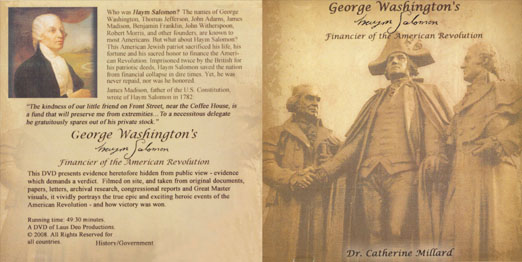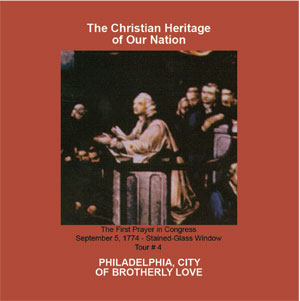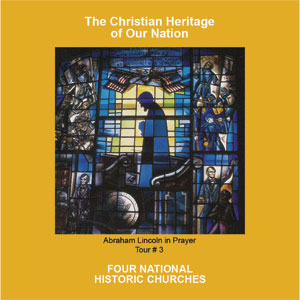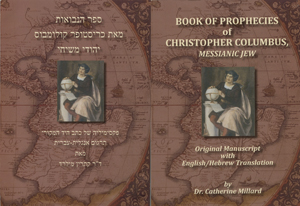A True Relation of our beginnings with the Indians
Upon October 28, 1646, four of us (having sought God), went unto the Indians inhabiting within our bounds, with desire to make known the things of their peace to them. A little before we came to their Wigwams, five or six of the chief of them met us with English salutations, bidding us much welcome; who, leading us into the principal Wigwam of Waaubon, we found many more Indians, men, women, children, gathered together from all quarters round about, according to appointment, to meet with us, and learn of us. Waaubon, the chief minister of Justice among them, exhorting and inviting them before thereunto, being one who gives more grounded hopes of serious respect to the thing of God, than any that as yet I have known of that forlorn generation; and therefore, since we first began to deal seriously with him, has voluntarily offered his eldest son to be educated and trained up in the knowledge of God, hoping, as he told us, that he might come to know Him, although he despaired much concerning himself; and accordingly his son was accepted, and is now at school in Dedham, whom we found at this time standing by his father among the rest of his Indian brethren, in English clothes.
They being all there assembled, we began with prayer, which now was in English, being not so far acquainted with the Indian language as to express our hearts herein before God or them, but we hope it will be done ere long, the Indians desiring it that they also might know how to pray; but thus we began in an unknown tongue to them, partly to let them know that this duty in hand was serious and sacred, (for some of them understand by what is undertaken at prayer), partly also in regard of ourselves, that we might agree together in the same request and heart-sorrows for them even in that place where God was never wont to be called upon.
When prayer was ended, it was a glorious affecting spectacle to see a company of perishing, forlorn outcasts, diligently attending to the blessed word of salvation then delivered; professing they understood all that which was then taught them in their own tongue; it much affected us that they should smell some things of the Alabaster box broken up in that dark and gloomy habitation of filthiness and unclean spirits. For about an hour and a quarter the Sermon continued, wherein one of our company ran through all the principal matter of religion, beginning first with a repetition of the Ten Commandments, and a brief explication of them, then showing the curse and dreadful wrath of God against all those who broke them, or any one of them, or the least tittle of them, and so applied it unto the condition of the Indians present, with much sweet affection; and then preached Jesus Christ to them, the only means of recovery from sin and wrath and eternal death, and what Christ was, and whither he was now gone, and how he will one day come again to judge the world in flaming fire; and of the blessed estate of all those that by faith believe in Christ, and know him feelingly: he spoke to them also (observing his own method as he saw most fit to edify them) about the creation and fall of man, about the greatness and infinite being of God, the maker of all things, about the joys of heaven, and the terrors and horrors of wicked men in hell, persuading them to repentance for several sins which they live in, and many things of the like nature; not meddling with any matters more difficult, and which to such weak ones might at first seem ridiculous, until they had tasted and believed more plain and familiar truths.
Having thus in a set speech familiarly opened the principal matters of salvation to them, the next thing we intended was discourse with them by propounding certain questions to see what they would say to them, that so we might place, by variety of means, something of God into them; but before we did this we asked them if they understood all that which was already spoken, and whether all of them in the Wigwam did understand or only some few? And they answered to this question with multitude of voices, that they all did understand to know of them, if they would propound any question to us for more clear understanding of what was delivered; whereupon several of them propounded presently several questions, (far different from what some other Indians under Kitshomakin in the like meeting about six weeks before had done, i.e., l. What was the cause of Thunder. 2. Of the Ebbing and Flowing of the Sea. 3. Of the wind. But the questions which we think some special wisdom of God directed these unto, which these propounded, were in number six.
How may we come to know Jesus Christ?
Our first answer was, that if they were able to read our Bible, the book of God, therein they should see most clearly what Jesus Christ was: but because they could not do that; therefore,
Secondly we wished them to think, and meditate of so much as had been taught them, and which they now heard out of God’s book, and to think much and often upon it, both when they did lie down on their mats in their Wigwams, and when they rose up, and to go alone in the fields and woods, and muse on it, and so God would teach them; especially if they used a third help, which was,
Prayer to God to teach them and reveal Jesus Christ unto them; and we told them, that although they could not make any long prayers as the English could, yet if they did but sigh and groan, and say thus; Lord make me know Jesus Christ, for I know Him not, and if they did say so again and again with their hearts that God would teach them Jesus Christ, because He is such a God as will be found of them that seek Him with all their hearts, and He is a God hearing the prayers of all men, both Indian as well as English, and that English men by this means have come to the knowledge of Jesus Christ.
The last help we gave them was repentance, they must confess their sins and ignorance unto God, and mourn for it, and acknowledge how just it is, for God to deny them the knowledge of Jesus Christ or anything else because of their sins.
These things were spoken by him who had preached to them in their own language, borrowing now and then some small help from the Interpreter whom we brought with us, and who could oftentimes express our minds more distinctly than any of us could; but this we perceived, that a few words from the Preacher were more regarded than many from the Indian Interpreter.
One of them, after this answer, replied to us, that he was a little while since praying in his Wigwam, unto God and Jesus Christ, that God would give him a good heart, and that while he was praying, one of his fellow Indians interrupted him, and told him, that he prayed in vain, because Jesus Christ understood not what Indians speak in prayer, He had been used to hear English men pray and so could well enough understand them, but Indian language in prayer he thought He was not acquainted with, but was a stranger to it, and therefore could not understand them. His question therefore was, whether Jesus Christ did understand, or God did understand Indian prayers.
This question, sounding just like themselves, we studied to give as familiar an answer a we could, and therefore in this, as in all our other answers, we endeavoured to speak nothing without clearing it up by some familiar similitude; our answer summarily was therefore this, that Jesus Christ and God by Him made all things, and makes all men, not only English, but Indian men, and if He made them both (which we know the light of nature would readily teach as they had been also instructed by us) then He knew all that was within man and came from man, all his desires, and all his thoughts, and all his speeches, and so all his prayer; and if He made Indian men, then He knows all Indian prayers also: and therefore we bid them look upon that Indian Basket that was before them, there were black and white straws, and many other things they made it of, now though others did not know what those things were, who made not the Basket, yet he that made it must needs tell all the things in it, so (we said), it was here.
Another propounded this question after this answer, Whether English men were ever at any time so ignorant of God and Jesus Christ as themselves?
When we perceived the root and reach of this question, we gave them this answer, that there are two sorts of English men, some are bad and naught, and live wickedly and loosely, (describing them), and these kind of English men we told them were in a manner as ignorant of Jesus Christ as the Indians now are; but there are a second sort of English men, who though for a time they lived wickedly, also like other profane and ignorant English, yet repenting of their sins, and seeking after God and Jesus Christ, they are good men now, and now know Christ, and love Christ, and pray to Christ, and are thankful for all they have to Christ, and shall at last, when they die, go up to heaven to Christ; and we told them all these also were once as ignorant of God and Jesus Christ as the Indians are, but by seeking to know Him by reading His Book, and hearing His word, and praying to Him, etc., they now know Jesus Christ, and just so shall the Indians know Him if they so seek him also, although at the present they be extremely ignorant of Him.
How can there be an Image of God, because it’s forbidden in the second Commandment?
We told them that Image was all one Picture, as the Picture of an Indian, Bow and Arrows on a tree, with such little eyes and such fair hands, is not an Indian, but the Picture or Image of an Indian, and that Picture man makes, and it can do no hurt nor good. So the Image or Picture of God is not God, but wicked men make it, and this Image can do no good nor hurt to any man as God can.
Whether, if the father be naught, and the child good, will God be offended with that child, because in the second Commandment it is said, that He visits the sins of the fathers upon the children?
We told them the plainest answer we could think of, i.e. that if the child be good, and the father bad, God will not be offended with the child, if he repents of his own and his father’s sins, and follows not the steps of his wicked father; but if the child be also bad, then God will visit the sins of fathers upon them, and therefore wished them to consider of the other part of the promise made to thousands of them that love God and the Evangenesh Jehovah, i.e. the Commandments of Jehovah.
How all the world is become so full of people, if they were all once drowned in the Flood?
We told them the story and causes of Noah’s preservation in the Ark at large, and so their questioning ended; and therefore we then saw our time of propounding some few questions to them, and so took occasion thereby to open matters of God more fully.
Our first question was, Whether they did not desire to see God, and were not tempted to think that there was no God, because they cannot see Him?
Some of them replied thus; that indeed they did desire to see Him if it could be, but they had heard from us that He could not be seen, and they did believe that though their eyes could not see him, yet that He was to be seen with their soul within. Hereupon we sought to confirm them the more, and asked them if they saw a great Wigwam, or a great house, would they think that Racoons or Foxes built it that had no wisdom, or would they think they could not see him that made it? No, but they would believe some wise workman made it though they did not see him; so should they believe concerning God, when they looked up to Heaven, Sun, Moon, and Stars, and saw this great house He has made, though they do not see Him with their eyes, yet they have good cause to believe with their souls that a wise God, a great God made it.
We knowing that a great block in their way to believing is that there should be but one God, (by the profession of the English), and yet this God in many places; therefore we asked them whether it did not seem strange that there should be but one God, and yet this God in Massachusetts, at Connecticut, at Quimipeiock, in old England, in this Wigwam, in the next, everywhere.
Their answer was by one most sober among them, that indeed it was strange, as everything else they heard preached was strange also, and they were wonderful things which they never heard of before; but yet they thought it might be true, and that God was so big everywhere: whereupon we further illustrated what we said, by wishing them to consider of the light of the sun, which though it be but a creature made by God, yet the same light which is in this Wigwam was in the next also, and the same light which was here at Massachusetts was at Quimipeiock also, and in old England, and everywhere at one and the same time, the same, much more was it so concerning God.
Whether they did not find somewhat troubling them within after the commission of sin, as murder, adultery, theft, lying, etc., and what they think would comfort them against that trouble when they die and appear before God, (for some knowledge of the immortality of the soul almost all of them have.)
They told us they were troubled, but they could not tell what to say to it, what should comfort them; he therefore who spoke to them at first concluded with a doleful description (so far as his ability to speak in that tongue would carry him), of the trembling and mourning condition of every soul that dies in sin, and that shall be cast out of favor with God.
Thus after three hours time thus spent with them, we asked them if they were not weary, and they answered, No. But we resolved to leave them with an appetite; the chief of them seeing us conclude with prayer, desired to know when we would come again, so we appointed the time, and having given the children some apples, and the men some tobacco and what else we then had at hand, they desired some more ground to build a Town together, which we did much like of, promising to speak for them to the General Court, that they might possess all the compass of that hill, upon which their Wigwams then stood, and so we departed with many welcomes from them.
A True Relation of our coming to the Indians the second time
Upon November 11, 1646, we came the second time unto the same Wigwam of Waaubon, where we found many more Indians met together than the first time we came to them: and having seats provided for us by themselves, and being sat down a while, we began again with prayer in the English tongue; our beginning this time was with the younger sort of Indian children in catechizing of them, which being the time of instructing them…The catechism being soon ended, he that preached to them, began thus (speaking to them in their own language), i.e., We are come to bring you good news from the great God Almighty, maker of Heaven and earth, and to tell you how evil and wicked men may come to be good, so as while they live they may be happy, and when they die they may go to God and live in Heaven…
The first Question was suddenly propounded by an old man then present, who, hearing faith and repentance preached upon them to find salvation by Jesus Christ, he asked, Whether it was not too late for such an old man as he, who was near death to repent or seek after God.
This Question affected us not a little with compassion, and we held forth to him the Bible, and told him what God said in it, concerning such as are hired at the eleventh hour of the day: we told him also that if a father had a son that had been disobedient many years, yet if at last that son fall down upon his knees and weep and desire his father to love him, his father is so merciful that he will readily forgive him and love him; so we said it was much more with God who is a more merciful father to those whom He has made, than any father can be to his rebellious child whom he hath begot, if they fall down and weep, and pray, repent, and desire forgiveness for Jesus Christ’s sake; and we further added that look as if a father did call after his child to return and repent promising him favour, the child might then be sure that his father would forgive him; so we told them that now was the day of God risen upon them, and that now the Lord was calling them to repentance, and that He had sent us for that end to preach repentance for the remission of sins, and that therefore they might be sure to find favour though they had lived many years in sin, and that therefore if now they did repent, it was not too late as the old man feared, but if they did not come when they were thus called, God would be greatly angry with them, especially considering that now they must sin against knowledge, whereas before we came to them they knew not anything of God at all…
_______________________
Source: Library of Congress, Rare Book Collection.























